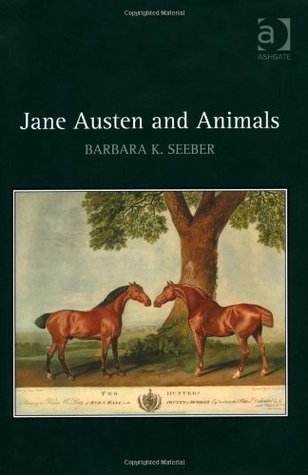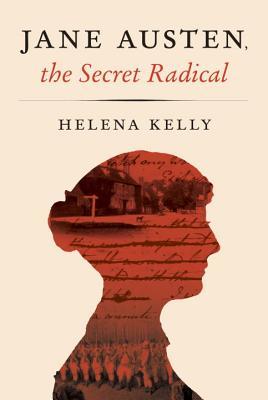Our September meeting topic was inspired by some members reading about the late Hilary Mantel’s planned rewrite of Pride and prejudice. Titled Provocation, its perspective was apparently that of poor overlooked Mary Bennet. The Guardian‘s Allardice writes that “The universally acknowledged truth she [Mantel] boots out the door from the off is that Mr Darcy, literature’s favourite strong, silent type, is such a catch.” Given the many portrayals and interpretations of Darcy – in big and small screen adaptations, in fan fiction/rewrites/sequels, and in criticism – we decided it was time to revisit our beloved Mr Darcy!
The member who suggested the topic opened the proceedings by asking how we had reacted to Darcy when we first read the novel – which none of us, as she expected, could remember! What was Austen trying to do at the beginning, as we don’t know then that he’s not the ogre he appears to be. On first meeting him, we see him as rich, and disagreeable. The dashing Wickham’s stories and Darcy’s first proposal only further this impression. It’s not until we see his letter (after that proposal) and then hear from his housekeeper, Mrs Reynolds, at Pemberley, that we start to see him in a different light.
Then our member injected some controversy into the meeting when she shared a picture of what Darcy looked like according to literary experts’ analysis. You can see it here. Not much like Colin Firth – whom many see as the perfect Darcy – and roundly rejected by several at the meeting. We nearly had a riot.
So, Mantel’s response to Darcy is fascinating, and makes us think. He is used to not being contradicted, to being surrounded by sycophants, until Elizabeth comes on the scene. Here is Mary Bennet, in Mantel’s draft:
When was Darcy ever contradicted? His every assertion was treated as scripture. When were his wishes not performed, as if they were law? Such infallible consideration must divide a man from himself: he is dull but never knows it, for he receives witty answers to witless questions. I saw that it would be Elizabeth’s lifetime work to collaborate with his innocent self-conceit. It is what she will give, in return for being mistress of Pemberley.
From here, our discussion ranged over many ideas. Not many of us had read about Mantel so we looked at Darcy from our own perspectives. One member shared some ideas from the David Shapard’s notes in his annotated version of Pride and prejudice. We tend to criticise Darcy’s rudeness in not liking to dance with people he doesn’t know – with its being “a punishment” to stand up with them – but Shapard also points out that Darcy would be conscious of conferring some status on (raising the stature of) anyone he chose to dance with.
Our member also described Darcy as having a few angles – the man of mystery, the man of action, the marriageable man – and argued that he is multilayered.
Our remote member emailed, as she often does, her response. She wrote that she switched off the romantic film images of Darcy, ignored decades of female panting and with the assistance of Hilary Mantel, concentrated purely on the text. She came to see that Jane Austen’s Darcy was definitely not desirable, that he was merely a typical product of the English class system, instilled from birth with the landed gentry’s strong sense of entitlement. He may have been startled into self-examination after Elizabeth’s rebuttal of his first proposal but, she asked, do we really believe a man with such robust self-esteem can cast off his appalling conceit, arrogance and total lack of empathy so easily?
Austen, she continued, beguiled us into accepting that Elizabeth lost her Prejudice and Darcy relinquished his Pride. Not so. After the announcement of their engagement Elizabeth still has to do “all she could to shield him…….and was ever anxious to keep him to herself, and to those of her family with whom he might converse without mortification”. A delicate flower indeed. Further, argued our member, he succeeded in transferring her Prejudice from himself to her family for ‘she looked forward with delight to the time when they should be removed from society so little pleasing to either, to all the comfort and elegance of their family party at Pemberley’. Surely a subversive twist from Austen to round off the tale!
Quite independently, another member decided to focus on the end of the novel and, on this close reading, realised that the novel isn’t as simplistically romantic as it looks. In the second proposal chapter, Darcy self-assesses as having been “a selfish being all my life, in practice, though not in principle… I was given good principles, but left to follow them in pride and conceit… I was spoilt by my parents, who… allowed, encouraged, almost taught me to be selfish and overbearing, to care for none beyond my own family circle, to think meanly of all the rest of the world, to wish at least to think meanly of their sense and worth compared with my own. Such I was from eight to eight and twenty; and such I might still have been but for you, dearest, loveliest Elizabeth!”
Not long after this, we have the end of the penultimate chapter which tells us that:
Elizabeth did all she could to shield him from the frequent notice of either, and was ever anxious to keep him to herself, and to those of her family with whom he might converse without mortification; and though the uncomfortable feelings arising from all this took from the season of courtship much of its pleasure, it added to the hope of the future; and she looked forward with delight to the time when they should be removed from society so little pleasing to either, to all the comfort and elegance of their family party at Pemberley.
Then in the final chapter we learn a little about their married life, that:
- Mr Bennet visits Pemberley as often as he can, implying Mr Darcy accepted this, and therefore has become less snobbish.
- Mr Darcy won’t let Mr Wickham come to Pemberley but continues to help the Wickhams to some degree, which suggests continued generosity and honourable behaviour, though presumably mostly for Elizabeth’s sake.
- Mr Darcy accepts Elizabeth’s “lively, sportive” treatment of him, which surprises Georgiana, but could indicate some learning of humility (albeit for love!)
- Mr Darcy learns to swallow his pride and seeks reconciliation with Lady Catherine – but again for Elizabeth – suggesting that his stubborn streak remains but that he is more open to listening.
- Mr Darcy loves the Gardiners which indicates that he is less snobbish and more willing to judge people by character not class.
The question then is how much did Darcy change, and how easy was Elizabeth’s life really?
Other members took other approaches.
One looked at Tony Tanner’s writing on Pride and prejudice. Tanner argued that being conventional himself, Darcy admired Elizabeth for defying convention. Although written during Napoleonic times, it is, Tanner says, a novel in which a man changes his manners and a lady changes her mind. This member also noted that much of what Darcy did, he did for Elizabeth!
For another member, the interesting question was how much it cost Darcy to rescue Lydia, not just the money paid, but the expenditure involved in undertaking the search and all that that entailed. In this behaviour, she said, he epitomises the novel’s opening line. He has the money, and will do what he can for Elizabeth.
She also felt that it’s not surprising that he’s keenly aware of his status, but she saw him as willing to change.
Taking a different approach again was the member who looked at Barbara Seber’s book. That Darcy is a fisherman is very much in his favour, Seber says, because the two best men in the novel, Darcy and Mr Gardiner, are fishermen. It’s quite a contemplative sport, unlike hunting. Bad boys – and some not so bad, like Mr Bingley and Mr Bennet – are hunters, but Mr Darcy is, significantly, a fisher. Seber commences, however, with the fact that Darcy is a reader, and possesses a fine library, which distinguishes him from the hunting, sporting types. In fact, Austen barely mentions Darcy in terms of sport.
Further, P&P, says Seber, is ‘distinctive in the Austen canon’ for linking ‘both the hero and the heroine with nature’. Darcy prefers nature and the outdoors to society, and Elizabeth is associated with nature (with her walks, and her desire for travel in the countryside). Darcy’s sensitivity to nature is emphasised. For example, he pauses in the walk around Pemberley to observe a ‘water plant’.
We learn much about Darcy through the description of Pemberley and the words of his housekeeper, and it is also here that we learn he is a fisherman. He is the only Austen hero associated with fishing, which distances him from questions of cruelty that were even then associated with hunting. Also, Darcy offers Mr Gardiner the opportunity to fish in his ponds, a civil gesture which, says Seber, ‘gestures towards the bridging of the class distinctions inscribed in rural sport’ and which makes Pemberley, in her view, Austen’s ‘attempt to imagine an ideal community where the relationship to nature does not inscribe social hierarchies’.
Our newest member said that he was only just getting to know Darcy, but agreed that he is multi-layered. His first impression, when Elizabeth was at Netherfield caring for Jane, was that Darcy was unpleasant, aloof, impolite. Regarding the first proposal, however, our member wondered whether his boastful behaviour might mask shyness. Interesting point. Then comes the complete turnaround with the Lydia situation in which he shows himself to be compassionate and decent, a man women would like.
Our last member to contribute looked at Helena Kelly’s book. For Kelly and this member, Darcy is intriguing. He likes Elizabeth’s unconventionality, he listens to Elizabeth and makes himself vulnerable to her. At Pemberley, he is a loving brother, and a good landlord and employer. Elizabeth, Kelly argues, likes him partly because he represents British culture. However, Kelly also makes the point that Austen breaks with convention, because at the time writers didn’t like marrying their characters out of class.
As usual, we came to no overall conclusion, but we did give ourselves much to think about!
Sources:
- Jane Austen; annotated and edited, with an introduction, by David M. Shapard, The annotated Pride and prejudice: A revised and expanded edition
- Margaret Doody, Jane Austen’s names: Riddles, persons, places (2015) (a couple of members also looked at Doody’s discussion of Darcy’s name)
- Helena Kelly, Jane Austen, the secret radical (2016)
- Barbara K Seber, Jane Austen and animals (2013)
- Tony Tanner, Jane Austen


As a 17 year old boy I was probably impressed by Darcy. Now, I think he was shy, but of course born-to-rule, the more arrogant aspects of which he grew out of. I certainly think the best part of his character was his constant friendliness to Mr Gardiner, which I think demonstrated what Eliz saw in him.
I’m disappointed in both Mr Bennet and Eliz that after the marriage Mr B, who was of Mr Darcy’s class, visited without his wife.
Ha Bill… Interesting that you and the male contributor at our meeting see shyness in him. I think Mr Darcy scared Mrs B and that she’d have been happier having her house to herself for a while than visiting Pemberley.